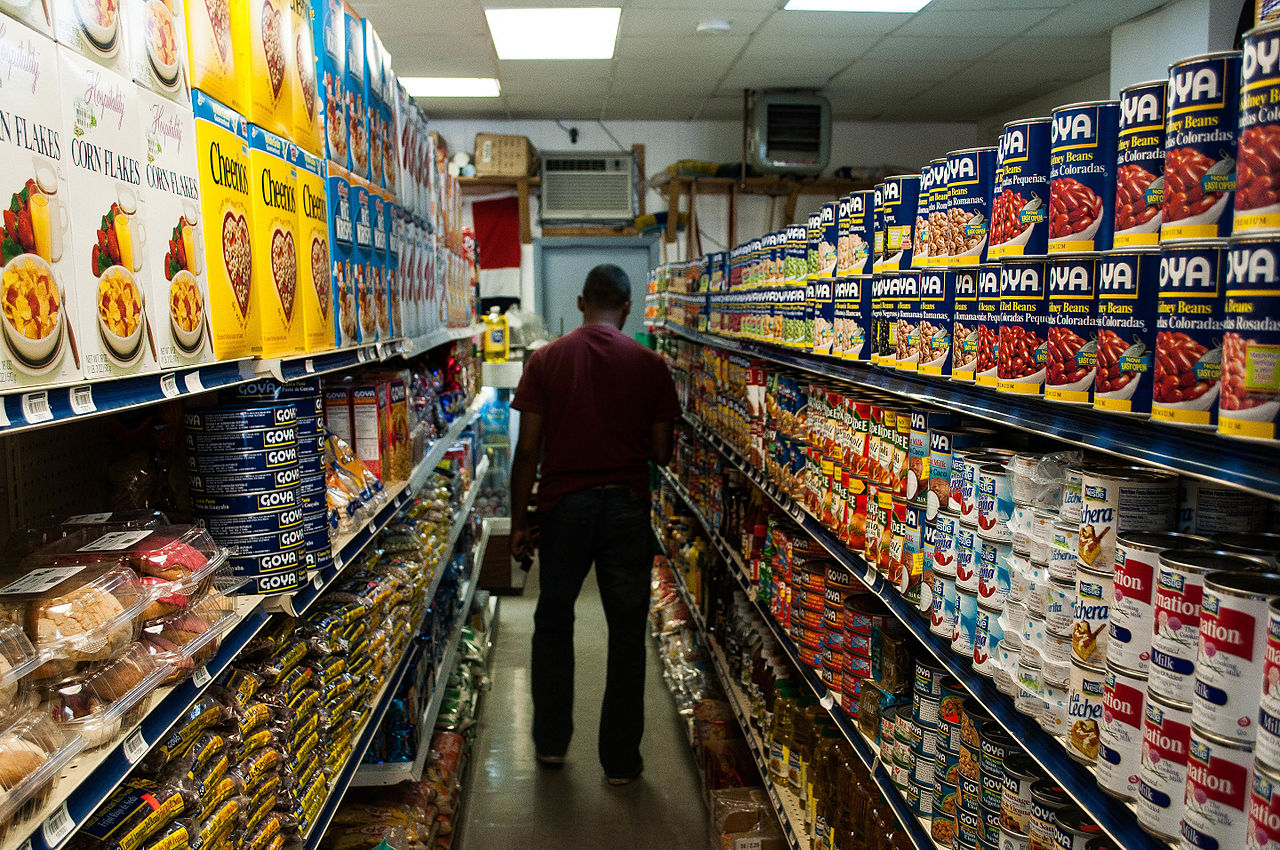Reducing food insecurity and improving overall nutrition continue to be key priorities in the fight to alleviate poverty, particularly given the continued rise of diseases like diabetes and their increased prevalence among low-income and disadvantaged populations.
Among the proposed solutions, few are more prominent than the goal of reducing “food deserts”—a term for neighborhoods that lack traditional grocery stores or affordable and nutritious food options. Given that more than half of low-income neighborhoods fall in this category, it’s a worthwhile aim.
Unfortunately, as with many things activists and policymakers have more typically approached the challenge from the top-down—wielding external control of community enterprises, subverting local preferences, and distorting economic signals.
In an essay for City Journal, Steven Malanga highlights the latest target of progressive legislative efforts: discount retailers and dollar stores. “Communities like Oklahoma City, Tulsa, Fort Worth, Birmingham, and Georgia’s DeKalb County have passed restrictions on dollar stores, prompting numerous other communities to consider similar curbs,” he writes. “New laws and zoning regulations limit how many of these stores can open, and some require those already in place to sell fresh food.”
The reasoning is predictable. “Behind the sudden disdain for these retailers…are claims by advocacy groups that they saturate poor neighborhoods with cheap, over-processed food, undercutting other retailers and lowering the quality of offerings in poorer communities,” Malanga explains, pointing to a list of recent think pieces that highlight the underlying philosophy (e.g. 1, 2, 3).
Yet as several studies now demonstrate, though nutrition is lacking in many of these neighborhoods, the mere existence of a “food desert”—or, conversely, a plentiful grocery supermarket—actually has little effect on the health, diet, or nutrition of neighborhood inhabitants.
In a paper published in the Quarterly Journal of Economics, three economists chart grocery purchases in 10,000 households located in former food deserts, where new supermarkets have since opened. They found that people didn’t buy healthier food when they started shopping at a new local supermarket.
“We can statistically conclude that the effect on healthy eating from opening new supermarkets was negligible at best,” they wrote. In other words, the food-desert narrative—which suggests that better food choices motivate people to eat better—is fundamentally incorrect. “In the modern economy, stores have become amazingly good at selling us exactly the kinds of things we want to buy,” the researchers write. In other words, “lower demand for healthy food is what causes the lack of supply.”
By imposing restrictions on what these neighborhoods are actually asking for, city planners are bypassing the core issues and embedded behaviors, pretending as though lofty constraints will educate and empower. Worse still, such efforts end up limiting much positive development in these areas, preventing or erasing plenty of affordable options well outside the category of “food and nutrition.”
But if reducing or expanding the number of specific types of grocery stores isn’t the solution, what else can be done? In his own reflections, Malanga proposes that the priority should be “educating people to change their eating habits,” and doing so by “subsidizing the purchase of fresh fruits and vegetables through the federal food-stamp program” and “working harder to encourage kids to eat better—as Michelle Obama tried to do with her Let’s Move! Campaign.” Richard Florida hints at much of the same in his own reflections on the same study.
Subsidizing select food purchases and implementing tailored educational campaigns may be more fruitful than outright banning needed enterprises from feeding the hungry at an affordable price. But even this still tackles the issue from the top down. If we expand our imaginations to look beyond the levers of policy, we see far more opportunities for truly empowering our neighbors.
Churches, in particular, have seen significant success in improving nutrition in these communities. For example, at Baltimore’s Pleasant Hope Baptist Church, Pastor Heber Brown III sought to fight what he calls “food apartheid” due to the impact on his neighborhood’s minority population. As Amy Sherman explains at Made to Flourish, what began as a modest effort to convert the church grounds into a 1,500-square-foot garden soon led to a city-wide coalition of churches and food markets.
“Over the past five years Brown has mobilized more than two dozen area congregations into the Black Church Food Security Network (BCFSN) to provide what he calls a ‘soil-to-sanctuary’ pipeline of healthy food for families living in ‘food deserts,’” she explains.
Unlike the typical coercive methods of activists and policymakers, the BCFSN has instead created a thriving institution with incentives that lead to actual ownership, education, and discipleship—from the bottom up and inside out. In addition to providing kick-start grants to churches for starting their own gardens, “it also assists them in recruiting volunteers, establishes pop-up farm stands at local churches, and offers Bible studies and presentations on topics like creation care and food justice,” Sherman explains.
In Brown’s perspective, this is not a “relief-oriented” program, but one that focuses on long-term community transformation. “The network is a more empowering and sustainable model for combating hunger,” Sherman writes, paraphrasing Brown. “It strengthens black farmers and gives city residents more control over their food supply.”
We should continue to explore the various ways that policy might be used to empower greater health in these communities. But based on the complexity of the individual behaviors and economic signals at play, as well as the failed approaches of the past, we have much to gain by shifting our focus more closely toward those in the communities themselves. As demonstrated by Brown, the power of actual boots-on-the-ground initiative and discipleship is far more likely to succeed and endure.

